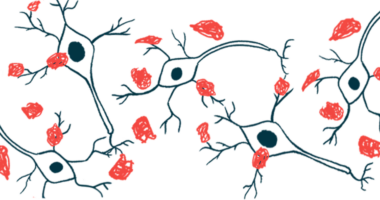 Discussion
Discussion
Keeping sharp: How to nourish cognitive health
Last updated Aug. 1, 2025, by Patricia Weiser, PharmD

Cognitive changes are a common part of living with Parkinson’s disease. These shifts in memory, attention, or decision-making may start subtly but can grow more noticeable over time.
The good news is that with the right tools, habits, and support, it’s possible to stay mentally engaged. From lifestyle strategies to targeted brain exercises for Parkinson’s, there are practical steps you can take to support long-term cognitive health.
Cognitive changes in Parkinson’s
Parkinson’s disease doesn’t just affect movement — it can also affect how you think, focus, and remember things.
These changes are often linked to the loss of dopamine, a brain chemical that helps with both movement and mental function. Parkinson’s may also affect other brain chemicals, like norepinephrine and acetylcholine, which play a role in memory and attention.
Cognitive symptoms tend to be mild at first and often become more noticeable over time. They may include:
- trouble concentrating or staying organized
- challenges with decision-making or planning
- changes in memory, such as forgetting how to do familiar tasks
- slower processing or delayed verbal responses
- trouble finding words or remembering names of everyday items
- problems with spatial awareness and perception, especially in low light
- difficulty with slurred speech or word confusion.
Other mental health symptoms like depression, anxiety, and apathy often overlap with cognitive changes. These conditions can show up at any stage and may make memory and attention problems feel worse.
Talk with your healthcare team as soon as you or a loved one notices any changes. Early support can make a big difference.
Everyday tips to stay sharp
Cognitive health isn’t just about memory. It’s about keeping your brain and body in sync. Taking good care of yourself with these everyday strategies can help support your cognitive health with Parkinson’s disease.
Eat well and stay hydrated
There’s no single “best brain food” for Parkinson’s, but a balanced diet full of whole foods, healthy fats, fruits, and vegetables supports overall health and brain function.
- Most people should aim for six to eight glasses of water daily.
- Limit sugar and alcohol.
- Eat fiber-rich foods to manage constipation.
- Include fish, nuts, eggs, and leafy greens for healthy fats and antioxidants.
Keep moving
Exercise supports both physical and cognitive health. It can improve mood, focus, and sleep.
Start small by trying to move every day. Even small actions can make a difference, such as stretching, walking around the house, or light housework.
Exercises shown to help people with Parkinson’s include:
- aerobic workouts, such as walking or swimming
- strength training using weights or resistance bands
- balance or gait training
- yoga or tai chi
- community-based or group classes.
Be sure to consult with your healthcare provider before starting a new exercise routine to ensure it’s safe for you.
Prioritize sleep
Getting consistent, quality sleep helps your brain recharge and retain new information. Aim for at least six hours a night and try to go to bed and wake up at the same time each day.
Create a supportive environment
If memory lapses make daily tasks harder, try:
- keeping your home organized so you know where things are
- setting up visual cues like sticky notes or labels
- using a calendar or app to track appointments and tasks
- choosing routines that help you stay on track.
Stay connected
Socializing stimulates your brain. Regular conversations, shared meals, or game nights can help you stay mentally and emotionally engaged.
Even if you live alone, staying in touch with friends, neighbors, or a support group can make a difference.
Ask for help
Occupational, physical, and speech therapists can help you adapt tasks, strengthen communication, and manage symptoms that affect thinking or memory.
Support animals and peer communities may also improve confidence and reduce stress.
Brain exercises for Parkinson’s
Keeping your mind active is one of the best things you can do for Parkinson’s cognitive health. Look for activities that are fun, creative, or meaningful — these are often the most beneficial.
The right mix of enjoyable and challenging activities can go a long way toward maintaining memory, focus, and confidence. Try the following brain-boosting habits.
- Stick with hobbies you love, such as gardening, knitting, or scrapbooking.
- Read, listen, and learn, as books, podcasts, or documentaries can keep your mind stimulated.
- Play games like crossword puzzles, trivia, card games, and memory games.
- Get creative by drawing, journaling, or crafting to improve focus and lift your mood.
- Practice mindfulness in nature by spending time outside.
- Try a new recipe, take an online class, or learn a skill you’ve always been curious about.
Group activities that combine fun and social interaction — like game nights with family or friends — can offer extra benefits for Parkinson’s memory support.
Helpful apps and tools
The right tools can help you stay organized and independent. From assistive devices to digital apps, there are plenty of options that can help support day-to-day activities while living with Parkinson’s.
Many tools are designed with Parkinson’s in mind or have features that work well for common challenges. Here are some worth exploring.
Everyday assistance
These tools can help with daily tasks and independence:
- electric toothbrushes and razors
- easy-grip utensils and dishware
- phone alarms, calendar apps, and sticky note reminders
- voice amplifiers for clearer communication.
Health and movement support
Similarly, there are also tools for health and movement support, including:
- smartwatches that monitor steps, sleep, and heart rate
- apps for setting goals and tracking habits
- electronic pill boxes and medication reminder apps
- symptom-tracking tools to log mood, memory, or speech changes.
Some tools are made to support walking and reduce freezing episodes. For example, apps and devices that play rhythmic sound cues can help you keep a steady pace. Canes or wearable devices with built-in lasers or metronomes may also guide your stride and improve timing.
Newer technologies are also being explored. Virtual assistants and artificial intelligence-powered coaching apps may one day help with daily routines, walking, and overall independence. While these tools are still in development, they show promise as part of the future of Parkinson’s support.
Parkinson’s News Today is strictly a news and information website about the disease. It does not provide medical advice, diagnosis, or treatment. This content is not intended to be a substitute for professional medical advice, diagnosis, or treatment. Always seek the advice of your physician or other qualified health provider with any questions you may have regarding a medical condition. Never disregard professional medical advice or delay in seeking it because of something you have read on this website.
Recent Posts
- A vocabulary lesson Parkinson’s families will intimately understand
- States push to ban or restrict paraquat, a herbicide linked to Parkinson’s
- My experiences with the stages of grief since my Parkinson’s diagnosis
- How a simple plant protein could help clear Parkinson’s toxins
- First patient in US trial gets new off-the-shelf cell therapy for Parkinson’s
Related content
-
 Discussion
Discussion
-
-




